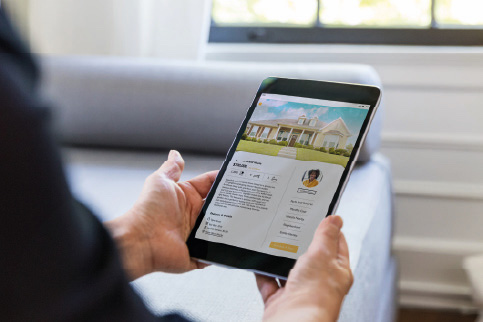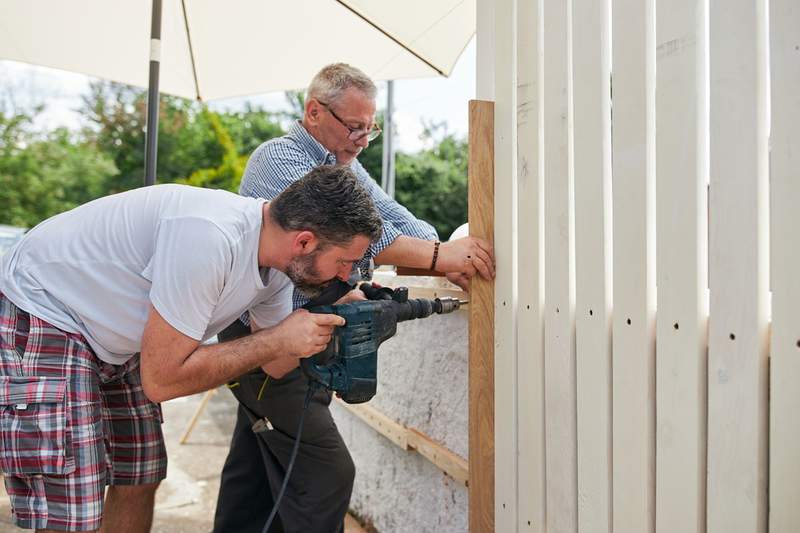

Knowing how much your property is worth can empower you to make informed decisions that set you up for financial success. Whether you’re buying a home or refinancing your mortgage, a home appraisal will likely play a role in the process.
Learn more about home appraisals, including how to get one, how much it costs and what can happen after a home appraisal.
A home appraisal assesses the fair market value of a house. The appraisal should offer unbiased insight into a property’s estimated worth by comparing it to recently sold homes in the area.
Lenders usually request home appraisals to assess a home’s value and ensure borrowers aren’t borrowing more than a home is worth, reducing the lender’s risk of overborrowing and the borrower’s risk of overpaying for a property. Sometimes, borrowers can even use the home’s appraised value as leverage during negotiations with a seller.
On average, a home appraisal for a single-family home can cost around $500. The appraisal of a multifamily property usually takes more time due to its overall size and complexity, costing closer to $2,000. The cost of a home appraisal will vary based on several factors, including a property’s size and location, the home type and the condition of the property.
While most mortgage lenders arrange and schedule the appraisal, home buyers usually cover all appraisal fees. The appraisal fee is usually paid at closing, but buyers may be able to pay it upfront.
Some home buyers can negotiate for the seller to pay for the appraisal. However, this arrangement is rare and is typically negotiated as a seller concession or as a seller strategy to sweeten the deal and sell the home.
Depending on your circumstances and your lender, the type of home appraisal you’ll need will vary. The most common home appraisal is the full appraisal. It requires an appraiser to inspect a property in person. New technologies have come into play to help streamline the process, reducing its cost and speeding it up.
Here are some of the most common types of home appraisals:
A full appraisal is what we typically think of when we think of home appraisals. It’s an in-person, in-depth assessment of a property by a professional appraiser. The appraiser visits a home to take photos and measurements and then reviews relevant public records and analyzes comparable home sales in the area.
With a drive-by appraisal (also called a summary appraisal), an appraiser doesn’t inspect the entire property. The appraiser only examines the home from the outside to determine its value. The appraiser typically relies heavily on public records or other data to estimate a home’s market value.
Hybrid appraisals allow appraisers to complete their assessment without ever visiting a house. A third party, typically an appraiser or qualified real estate agent, completes the in-person inspection. Their results are added to the appraiser’s research from public records, the MLS (multiple listing service) and other resources to determine the home’s market value.
Increasingly popular, desktop appraisals are similar to hybrid appraisals, except a third party doesn’t visit the home. Instead, appraisers use property records, floor plans and real estate comps to estimate a home’s value.
The appraiser’s job is to assign a fair market value to a property, not to uncover small or potential repair issues in a home.
Here are some things an appraiser will look at during the home appraisal process:
Besides factoring in a property’s location and measuring how it stacks up against comparable, recently sold homes in the area, appraisers also take into account:
An appraiser may also consider the condition of the home, including:
When there are signs pointing to potential issues, appraisers can also order any inspections they feel are necessary, usually roof, pest or water inspections. If the appraisal or an appraiser-ordered inspection uncovers conditions that don’t meet the lender’s requirements, they may need to be repaired before the lender can approve the mortgage.
A home appraisal coming back higher than expected is great news for the home buyer. Not only are they getting a good deal on the home, but they’re building more home equity from the start.
In these instances, the seller benefits from the home appraising for more than the asking price because it allows the sale to move forward quickly and smoothly.
A low appraisal can delay or derail a home purchase. Since lenders won’t lend more money than a home is worth, a low appraisal presents challenges for buyers relying on mortgage financing. But don’t panic just yet.
Whether you’re buying or selling, you may have options when the home’s appraised value is lower than the offer. Here are some options for dealing with a low appraisal:
Appraisals have short lifespans because market conditions change. Home sales from 6 months ago may be drastically different from recent sales, especially if the real estate market is volatile.
Most home appraisals are typically valid for 120 days (4 months). Appraisals for Federal Housing Administration (FHA) loans and most Department of Veterans Affairs (VA) loans expire after 180 days (6 months).
If you don’t close on the home within a loan’s specified time frame, you may need another home appraisal. While it’s rare and only allowed under very particular circumstances, an eligible borrower may receive an extension on their appraisal.
Whether you’re a first-time home buyer or a homeowner, home appraisals are important. Let’s take a look at some frequently asked questions about home appraisals.
What kind of appraisal do I need for an FHA or VA loan?Typically, the Federal House Administration (FHA) and Department of Veterans Affairs (VA) prefer a full appraisal. Drive-by appraisals may be an option in certain situations, though. Also, appraisers must have FHA or VA certification.
What’s the difference between a home appraisal and a home inspection?A home appraisal determines a home’s value. A home inspection determines a home’s condition. While lenders require appraisals, home inspections are often optional unless an appraiser notices anything that would require a home inspection. Even when they’re not required, getting a home inspection is still often a smart move for home buyers.
How can sellers prepare for an appraisal?Sellers can prepare for an appraisal by decluttering, tidying outside the home to increase curb appeal and keeping their pets away from the home during the appraisal. Sellers may also want to provide appraisers with a list of upgrades that aren’t listed but add value to the home.
Can sellers be present for an appraisal?Yes – and it’s recommended. As the seller, you can be there when an appraiser conducts their walk-through. Accompanying them gives sellers the chance to point out any upgrades, improvements or unique home features.
How can I lower my home appraisal cost?Home buyers can’t shop around for a cheaper home appraisal. There are regulations that make it impossible for lenders or buyers to choose an individual appraiser or one based solely on price.
Home appraisals are an essential component of any real estate transaction for sellers, lenders and home buyers financing their home purchase with a mortgage. It’s a pivotal step in the homeownership journey. Knowing a home’s value can impact the home sale price and a buyer’s loan amount.
You can get a real, customizable mortgage solution based on your unique financial situation.







 White beach house in tall grass." />
White beach house in tall grass." />




LMB Mortgage Services, Inc., (dba Quicken Loans), is not acting as a lender or broker. The information provided by you to Quicken Loans is not an application for a mortgage loan, nor is it used to pre-qualify you with any lender. If you are contacted by a lender or broker advertising within our network, your quoted rate may be higher depending on your property location, credit score, loan-to-value ratio, debt-to-income ratio, and/or other factors. Quicken Loans does not offer its matching services in all states. This loan may not be available for all credit types, and not all service providers in the Quicken Loans network offer this or other products with interest-only options. The information that we provide is from companies which Quicken Loans and its partners may receive compensation. This compensation may influence the selection, appearance, and order of appearance on this site. The information provided by Quicken Loans does not include all financial services companies or all of their available product and service offerings. Article content appears via license from original author or content owner, including Rocket Mortgage.
Note: Actions on this website are recorded for quality assurance or training purposes. Input of data constitutes consent.
Quicken Loans is a registered trademark of Rocket Mortgage, LLC, used under license by LMB Mortgage Services, Inc.
LMB Mortgage Services, Inc. | NMLS #167283
4859 W Slauson Ave #405 Los Angeles, CA 90056